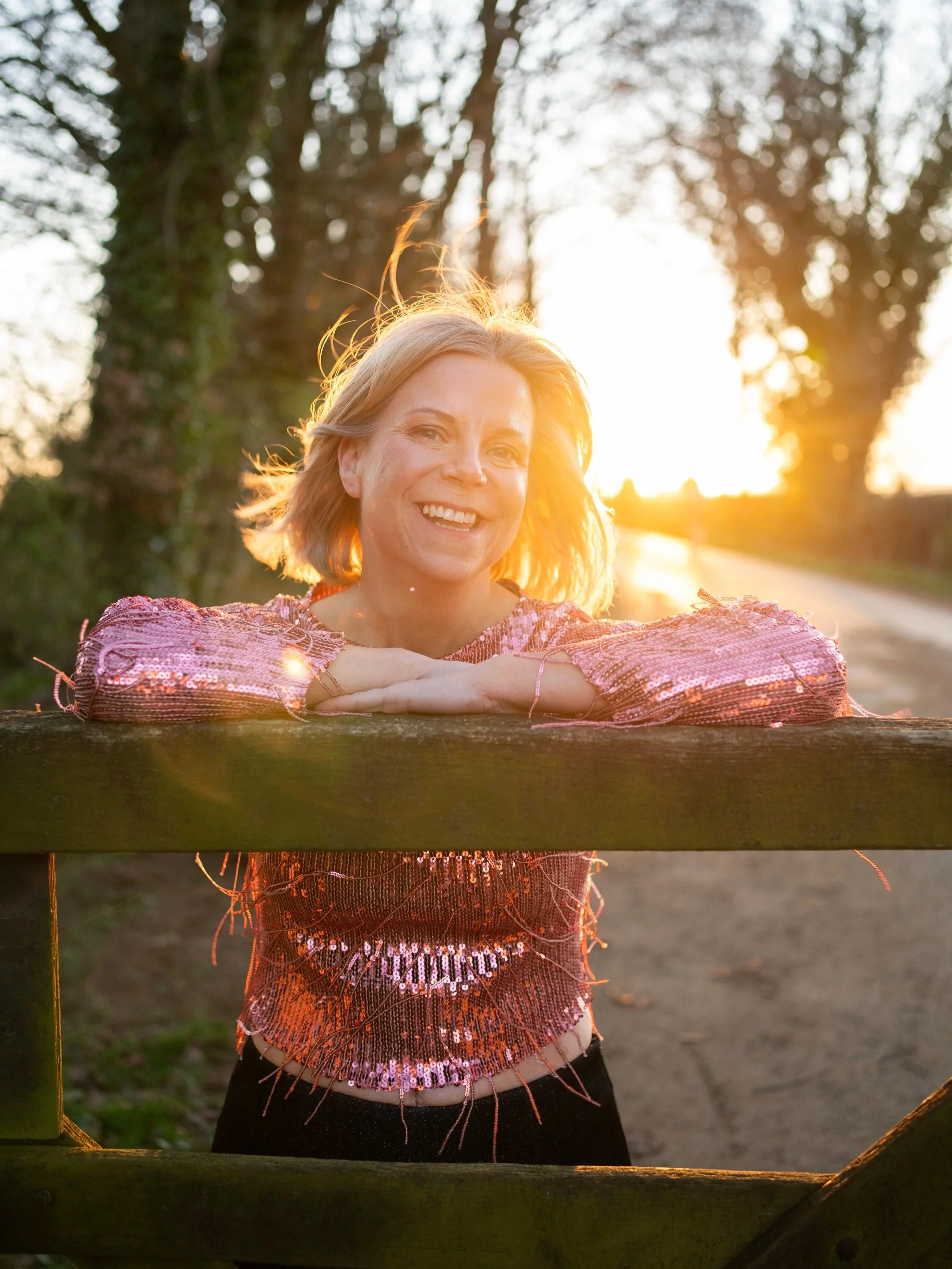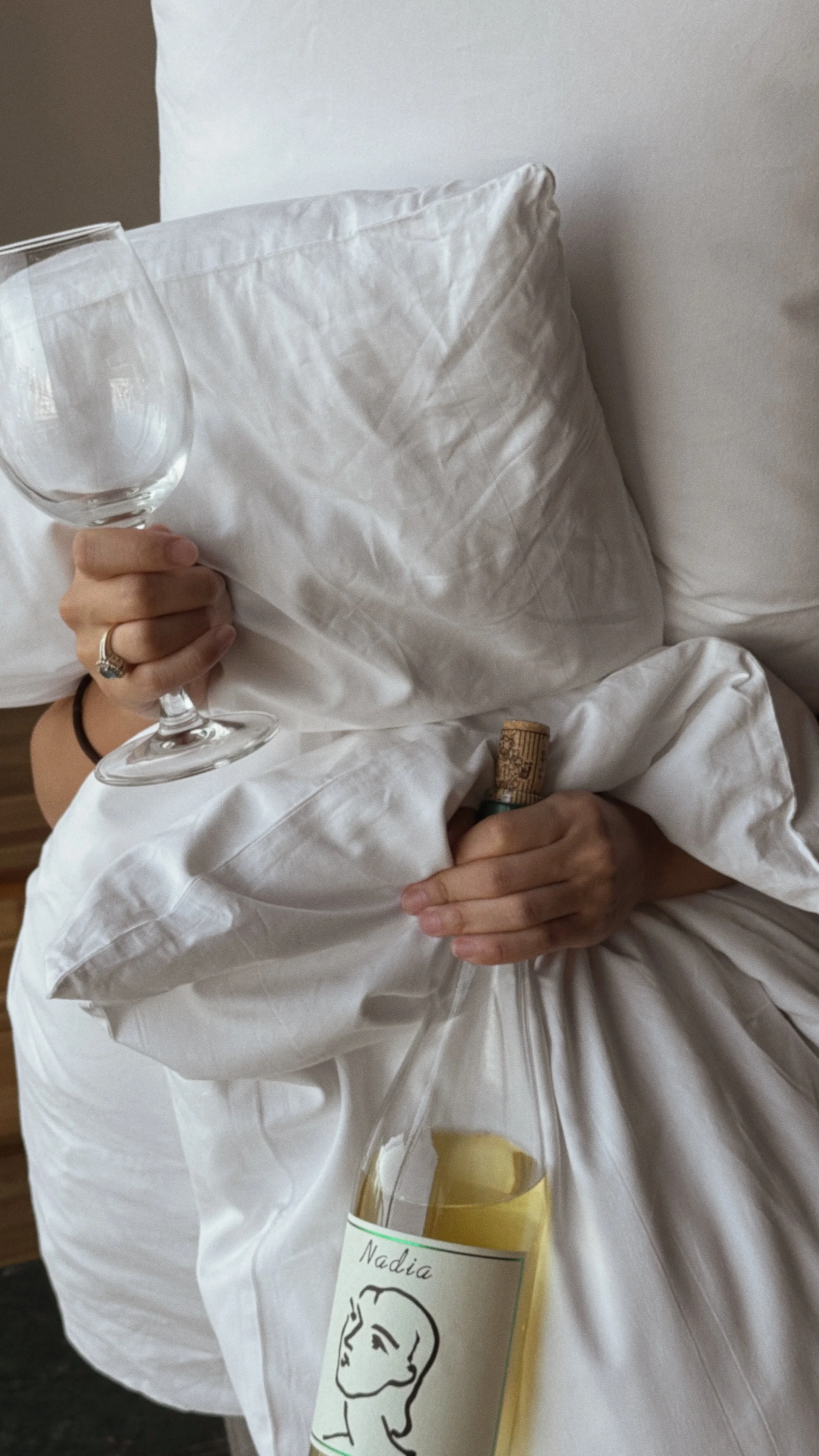The truth about alcohol in midlife
Rethinking "normal" drinking in midlife
We tell ourselves it's normal.
A glass to unwind after a long day. A few drinks on the weekend. Something celebratory. Something social. Something to reward a hard day at the office.
But when you're waking up tired, foggy, anxious or low — and you're not sure why — you start to wonder: is it perimenopause, or is it something else?
Tracy Ollerenshaw knows this story well. Once a successful BBC journalist, wife and mum of two, she was holding it all together — on the outside. But beneath the surface, she was running on autopilot, with alcohol as a quiet but constant companion.
This is the messy middle. Where nothing feels extreme. But everything feels a bit... off.
What is grey area drinking?
Grey area drinking lives between the extremes. You're not dependent, but you're not free either. You might be functioning well — you get up, do the school run, hold down a demanding job. But something feels flat. Disconnected.
Tracy describes it as putting rules around your drinking. "If I only drink on weekends... If I switch to red wine... If I have two alcohol-free days... Then it's fine."
Except it's not. Because your energy is crashing. Your sleep is broken. Your mood feels unpredictable. And your confidence? Flickering.
It's not that you're out of control. But you don't feel fully in control either. And that’s where many midlife women are getting stuck.
The real impact of alcohol on hormones, mood and identity
Alcohol doesn’t just affect your liver. It touches every part of your life. For women in perimenopause, alcohol hits differently. Your hormones are already fluctuating. Your nervous system is more sensitive. Your stress threshold is lower. Even one or two drinks can:
Disrupt sleep (even if you fall asleep faster)
Spike anxiety the next morning
Drain your energy
Mess with your blood sugar
Heighten irritability or low moods
But most of all? It numbs. It disconnects you from your inner voice. From your joy. From the woman you're becoming. And when you’re building a new chapter in midlife, you need clarity. Not coping mechanisms.
Yet in stats show that many midlife women are drinking more then ever — according to Newson Health a third of women said they were drinking more alcohol since becoming perimenopausal and menopausal.
“I thought I was managing, but I was just existing.”
From wine o'clock to true wake-up call
Tracy didn’t quit overnight. Like many women, she started with a challenge. First Sober October. Then, eventually, a 100-day alcohol-free commitment.
But the difference this time? She created an environment that supported her new identity.
She followed sober Instagram accounts.
She listened to alcohol-free podcasts.
She stocked her home with non-alcoholic alternatives.
She educated herself on what alcohol really does to the body.
And when you know better, you do better. "You can't unknow it once you know."
Tracy wasn’t chasing perfection. She was building a new version of herself. One who didn’t need wine to feel worthy, confident or fun.
Building new habits that actually stick
If you're thinking of reassessing your drinking, regardless of whether you have a specific goal to stop, or are just curious to reflect on how it’s making you feel, or explore your relationship with it, here's the 3 simple steps that Tracy recommends to get started:
Stock alcohol-free swaps: Try kombucha, zero-proof spirits, or even sparkling apple cider vinegar with fresh herbs. Keep the ritual. Ditch the regret.
Interrupt the autopilot: When the urge hits, change the pattern. Step outside. Take a walk. Call a friend. Get sunlight on your skin.
Change your inputs: Curate your social media, podcasts, books. Immerse yourself in the identity you're moving toward, not away from.
Because when your environment matches your intention, habits don’t feel hard. They feel natural.
It’s not about giving up. It’s about gaining more.
Since choosing an alcohol-free life, Tracy has found more energy, more patience, more joy. She's reconnected with her children. She's launched her business. She's started biking through sunsets and walking through sunflower fields. She shared how "It’s like life turned on in technicolour!"
And it all started with one decision: To question what "normal" really means.
Midlife isn’t about holding it all together while falling apart inside. It’s about unravelling what no longer serves you so you can rebuild something better. Something real.
You’re not boring if you don’t drink. You’re not broken if you’re questioning your habits. You're evolving. And maybe this version of you doesn't want to numb anymore. She wants to feel everything.
Want to get started? Listen to the episode where Tracy shares how alcohol impacts mood, hormones and identity, especially in perimenopause:
Interested in this topic? Find out more with these additional FREE resources:
Get my free perimenopause guide to help you get clear on the right new habits to support you feeling like yourself again (or even better!).
Download Tracy’s free "Sober Curious Swaps" guide
Read Tracy’s blog diving into the hidden “Hangxiety” so many midlife women begin to experience.
Take a read through this blog by Newson Health on all things alcohol and menopause.
Feeling tired, foggy or a little off—but not sure why?
It might not just be your hormones. Sometimes the habits we lean on to cope — like that evening glass of wine — can quietly drain our energy, disrupt our sleep and cloud our thinking.
The good news? You don’t need to overhaul your life to start feeling better.
Take the Midlife Reset Quiz to:
💛 Spot the habits or hidden stressors pulling you out of balance.
💛 Discover one small but powerful shift to support your energy and clarity.
💛 Start reconnecting with the version of you that feels calm, clear and in control.
It takes just 2 minutes — and gives you one clear next step that fits your real life.
✨ Take the Midlife Reset Quiz today and begin your next chapter with intention.


